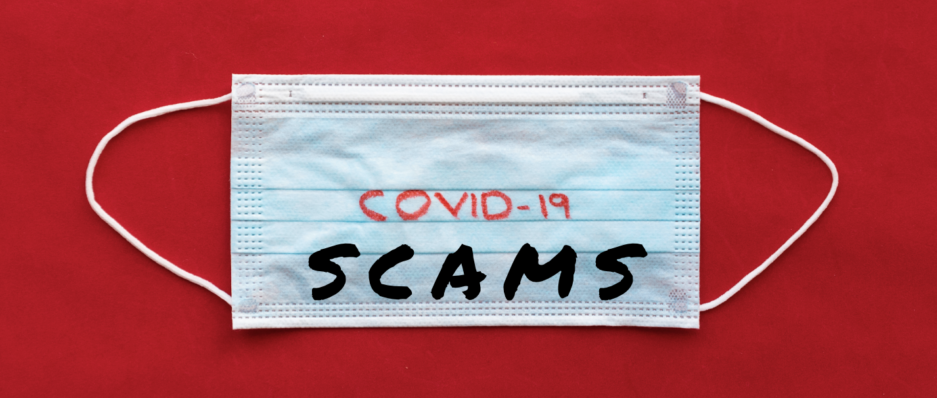Be aware of scams amid COVID-19 and protect your family
DORAL, FL – Scams amid COVID-19 are increasing significantly due to several factors that have put thieves on the look out for unsuspecting victims.
Just two days ago, two men were arrested for opening other people’s mailboxes in west Hialeah to steal their correspondence leaving the community in a fearful state as these days, in the midst of the coronavirus emergency, a lot of personal information is circulating through the mail.
Jonathan Perera, 19, and Ramses Fernández Rodríguez, 18, were caught by the police while they were carrying a backpack full of envelopes and personal documents that are usually used to commit fraud, as reported by Telemundo.
The economic crisis that many Americans are facing today in addition to the unemployment claims that recently reached record levels in the state and across the nation, together with the rising fears around coronavirus might have something to do with this scenario that most likely will become worst according to many experts.
One of them is the Federal Trade Commission that has warned people through its website of the possible scams and frauds that the stimulus checks will bring in the population. This warning has also come from the Internal Revenue Service (IRS) that has advised recipientes to be aware of scam artists posing as federal officials to steal people’s money.
According to the IRS and the U.S. Department of the Treasury, scams that are based on phone or internet schemes are likely to multiply as checks will be deposited directly into bank accounts or mailed.
“While much of the country is working from home, scammers are also working on schemes to steal your money…I urge everyone to heed the warnings to protect their personal information, bank account and anything potentially valuable to a scammer,” said Los Angeles US Attorney General Nick Hanna to Univision.
One way to do so is to know the most common tactics used by scammers. Calling by phone definitely takes number one place as several criminals call their victims to ask for personal information such as Social Security and bank account numbers with the excuse of making sure checks are sent to the appropriate recipients.
About this, the IRS and professional tax preparers have said multiple times that the IRS never contact a taxpayer by phone but rather through a letter sent home. The entity also doesn’t send text messages or emails with links, that sometimes are infected with malware, urging people to send personal information to receive money faster. Delete such messages and hang up immediately when contacted by phone.
As the stimulus checks will begin reaching the homes of millions of Americans starting the week of April 20, Federal authorities urged taxpayers to report suspected coronavirus-related fraud by calling the National Center for Disaster Fraud (NCDF) to the Hotline 1-866-720-5721 or sending an e-mail to disaster@leo.gov.
Other ways to protect yourself from scams amid COVID-19
According to the Federal Trade Commission:
– Hang up on robocalls and don’t press any numbers. Scammers are using illegal robocalls to pitch everything from scam Coronavirus treatments to work-at-home schemes.
– Ignore online offers for vaccinations and home test kits. Scammers are trying to get people to buy products that so far haven’t been proven to treat or prevent COVID-19.
– Fact-check information. Scammers, and sometimes well-meaning people, share information that hasn’t been verified.
– Know your sellers. Online sellers sometimes claim to have in-demand products, like cleaning, household, and health and medical supplies when, in fact, they don’t.
– Watch for emails claiming to be from the Centers for Disease Control and Prevention (CDC) or experts saying they have information about the virus. For the most up-to-date information about the Coronavirus, visit the Centers for Disease Control and Prevention (CDC) and the World Health Organization (WHO).
According to Doral’s Mayor, Juan Carlos Bermudez:
-IRS announced that Social Security beneficiaries will have stimulus checks sent directly them or their bank accounts, call directly for any questions 1-800-772-1213 -Verify charities through their website
-Verify Census worker at 1-800-923-8282
-Check Miami-Dade County website for COVID-19 testing


Pingback: DORAL FAMILY JOURNAL: Miami-Dade offers financial assistance for groceries to low-income families | Daniella Levine Cava for Mayor